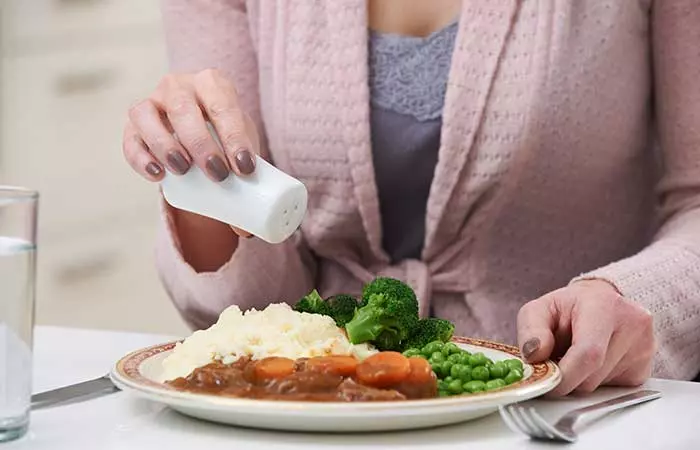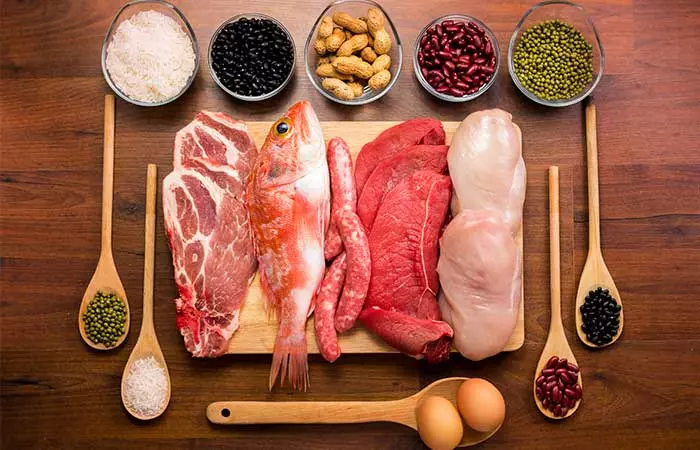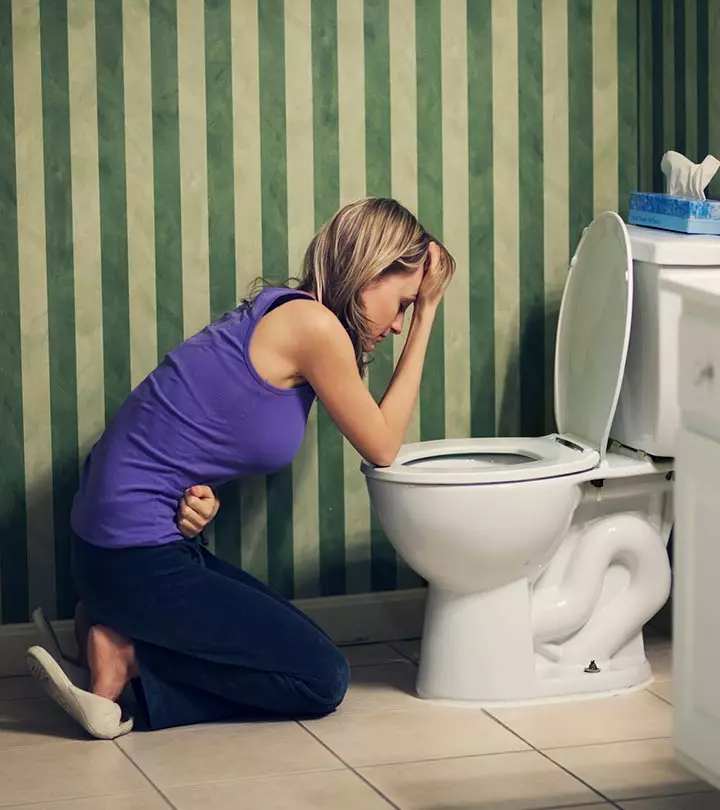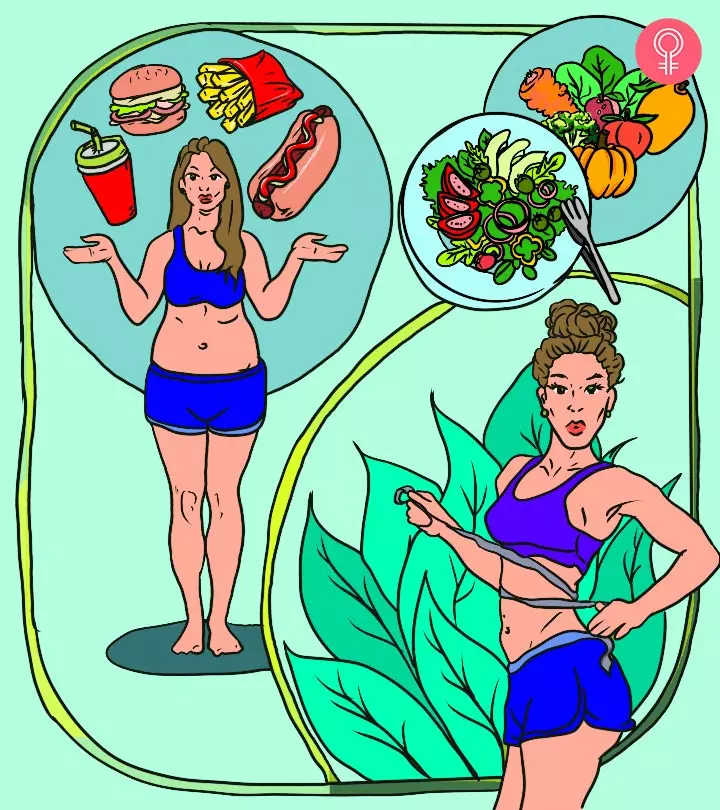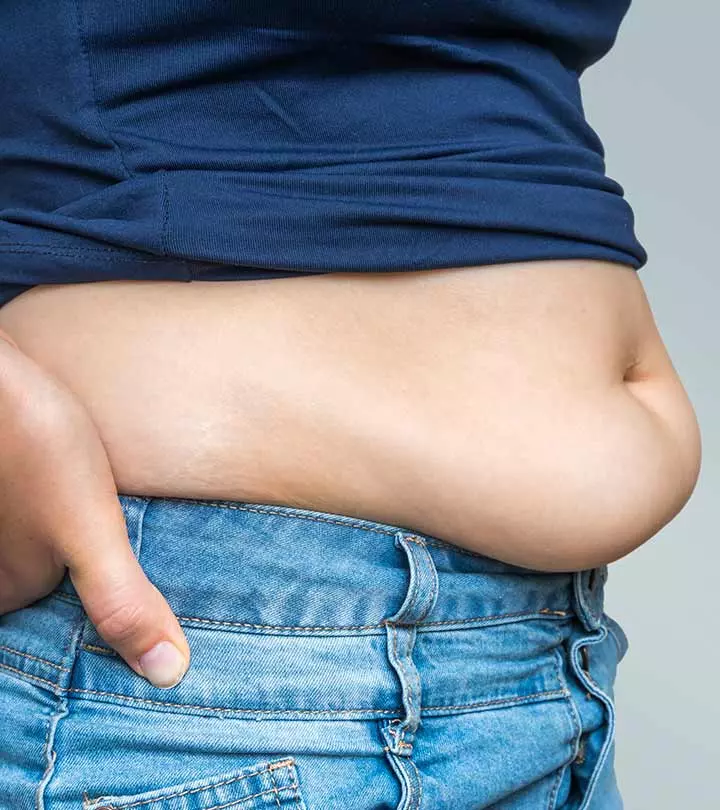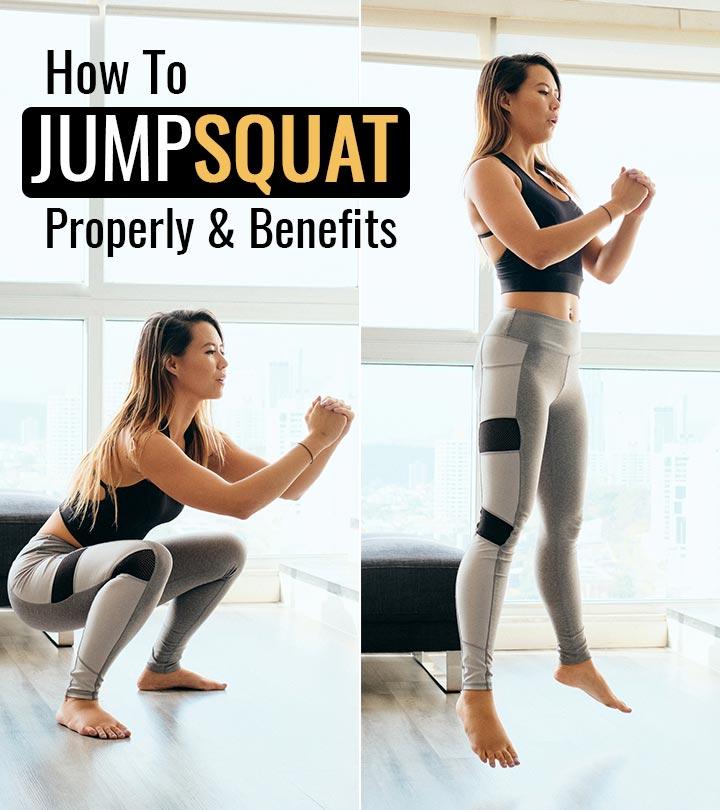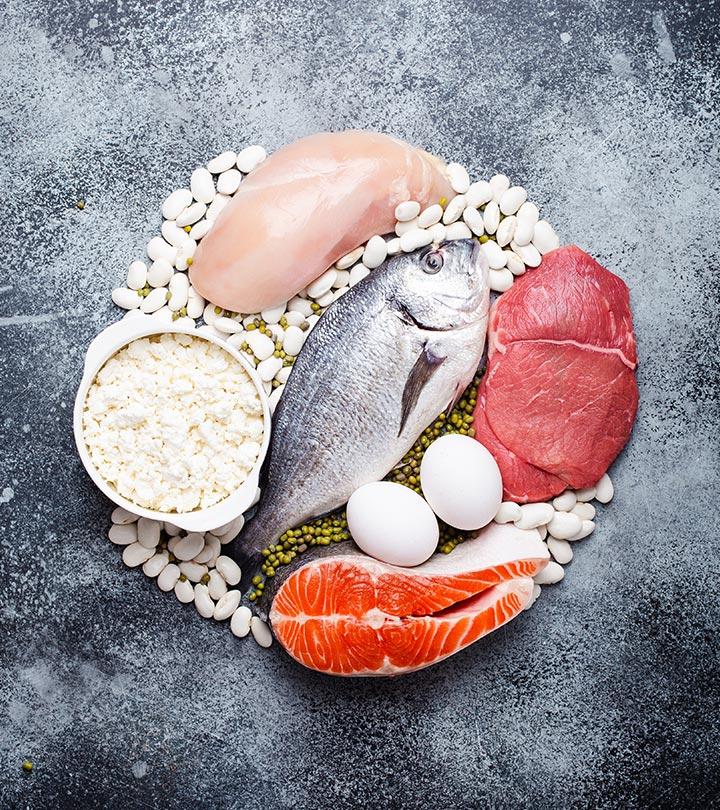7 Easy Ways To Lose Water Weight (Fast And Safely)
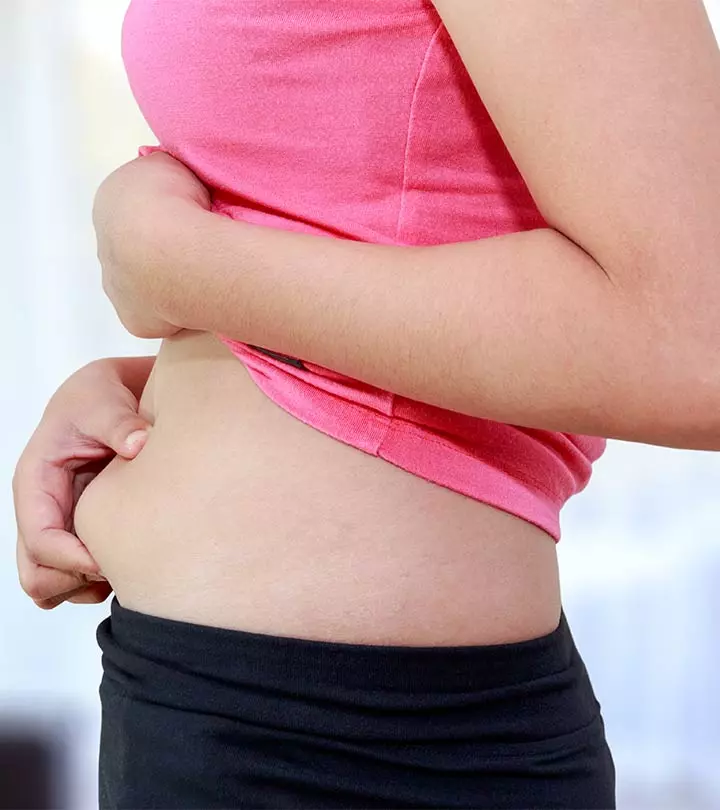
Image: Shutterstock
It’s an ordinary day. You wake up in the morning, attend nature’s call and then get busy getting ready for work. But the moment you come in front of the mirror, you can’t help but let out a slow and soft ‘Ugh!’
‘This is not the body I want.’ – You think to yourself, staring disappointedly at that bulge of your belly.
As you curse every single ounce of fat in your body under your breath, remember that fat is not the only cause of weight gain. Water retention is also a major cause that leads to what is known as water weight (1).
The good thing about water weight though is that it is pretty easy to lose. Just try all of the seven ways given here, and you’d be fast kissing that water weight goodbye!
1. Exercise Daily
If you’re looking for the best way to lose water weight in a short span of time, exercising is the way to go. The logic behind why exercising is the best way to drop water weight is very simple – you sweat when you exercise, which means you lose water and hence, weight!
On an average, by exercising for an hour, you can lose up to 500ml to 2 liters of fluid (2), (3). Although this is dependent on the type of clothes you wear and the body heat that you generate.
Besides, by helping ‘burn’ water, exercising can also help shift water into your muscles and can even reduce the soft look you experience due to water weight gain (4).
2. Lower The Stress Levels
Stress and water weight gain go hand in hand. When you’re chronically stressed out, the amount of the stress hormone, ‘cortisol’ increases in your body and so does fluid retention, thereby leading to water weight gain. The reason for this is that cortisol deeply affects the antidiuretic hormone (ADH), which is responsible for maintaining water balance in your body (5).
This hormone works by letting your kidneys know how much water they should pump into your body. Therefore, make sure you keep your stress levels in check to lose water weight.
3. Manage Your Electrolyte Intake
Minerals that contain an electric charge, such as potassium and magnesium, can be classified as electrolytes. And just like the hormones mentioned above, these too play a significant role in maintaining water balance in your body (6).
In fact, a shift in their levels (increase or decrease) can affect your fluid balance and lead to water weight gain. To make sure that doesn’t happen, you should regulate your electrolyte intake. This means that if you’re the kind of person who sips on a lot of water, exercises daily or even lives in a humid and hot climate, you should increase your electrolyte intake accordingly (7).
4. Keep Your Salt Intake In Check
The sodium present in salt is one of those things that affect the fluid balance in your body and lead to water retention.
A high intake of this electrolyte through processed foods can result in increased fluid retention; especially if you drink less water and don’t exercise either (8). Hence, reducing your salt intake can help you shed the excess water in your body.
5. Have More Water
As counterproductive as this may sound, you can lose that water weight by having more water! The reason behind this is simple. Your body is in the constant process of striking the right water balance in your body. When you are dehydrated, it tries extra hard to retain what it has, and that is what leads to water retention (9).
However, you can easily fix that by making sure your drink the right amount of water – which is neither too less nor too much. You can start by simply drinking a glass when you feel thirsty and only stopping when you feel that you have achieved the right hydration level.
6. Cut Down On Refined Carbohydrates
Of all the ways to lose water weight, this is the most common. Once in your body, carbs are stored in the form of glycogen, which binds itself to water molecules, thereby causing retention (10).
And that’s not all. Carbs also increase your insulin production, which causes sodium retention; and you know increased sodium means more water in your body! This is why you should cut down on carbs and prevent that “bloated” feeling from taking over.
7. Up Your Protein Consumption
A high protein diet is one of the easiest ways to make yourself feel lighter and free of water weight. Protein is a necessary nutrient that is needed to maintain the water balance in your body. When you don’t have enough of it, fluid builds up in your body, leading to that oh-so-heavy feeling (11).
So if that’s the cause behind your water weight, you can simply correct it by having more protein-rich foods such as eggs, meat, beans, lentils, soy etc.
And with that, we come to the end of this list. You can go ahead and try one of the above ways or even a combination of them. Just make sure that you’re consistent and patient with your efforts, as that’s the key to bidding adieu to water weight.



